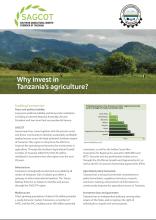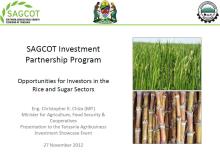Land Library
Welcome to the Land Portal Library. Explore our vast collection of open-access resources (over 74,000) including reports, journal articles, research papers, peer-reviewed publications, legal documents, videos and much more.
/ library resources
Showing items 1 through 9 of 45.A policy brief introducing a new book edited by Khwezi Mabasa and Bulelwa Mabasa. The book examines how land and agrarian reform impacts nation building;citizenship and identity formation.
An analysis of the July South African report on land and agriculture which documents the sorry tale of land reform since 1994. Says action on land reform is long overdue. Makes sensible recommendations on expropriation.
Includes agri-food regimes and corporate concentration in the agri-food system in South Africa; three broad phases of land reform, 1994-99, 1999-2007, 2007 to the present; two competing views of small-scale agriculture, land reform and small-scale agricultural production, smallholder farmer suppo
Government has come together with the private sector and donor community to develop sustainable, profitable agribusinesses across the high-potential Southern region of Tanzania. This region is a key focus for efforts to improve the operating environment for investments in agriculture.
The Southern Agricultural Growth Corridor of Tanzania (“SAGCOT”) has been established as a public private partnership with the objective to enhance Tanzania’s food security and accelerate agricultural transformation.
Tanzania has a long history of sugar cane production and it has now a prioritized national policy to attract foreign investments into modern and industrial scale sugar cane production. Between 2001 and 2010, the production of sugar in Tanzania increased from 130,000 Mt pa to 280,000 Mt pa.
The founding document of SAGCOT, the Investment Blueprint, was developed by the founding partners encompassing government, donor partners, farmers, and the private sector. The SAGCOT Investment Blueprint details the objectives of SAGCOT and how these will be achieved.
This case study is part of a Harvard Kennedy School CSR Initiative workstream on systemic approaches to creating business opportunity and development impact at scale.
Aim of SAGCOT is to coordinate Government, donor & corporate investments in agribusiness value-chains and supporting infrastructure (transport, power, irrigation, etc.), so bottlenecks are removed and the entire system works for investors, smallholders and consumers







